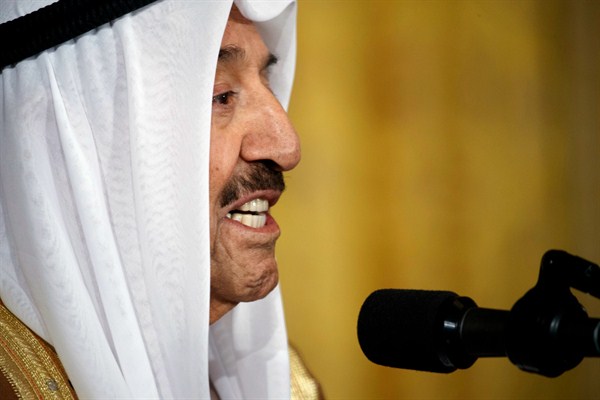On Monday, Kuwait’s emir, Sheikh Sabah al-Ahmad al-Sabah, accepted the resignation of the country’s entire Cabinet, dissolving it amid political infighting but with no official explanation. The move reflects Kuwait’s contentious political system, which has jeopardized the country’s recent efforts to stave off a financial crisis through needed economic reforms. In an email interview, Kristian Coates Ulrichsen, a Middle East fellow at Rice University’s Baker Institute and an associate fellow at Chatham House in London, explains what was behind the Cabinet’s resignation and what it means for Kuwait’s political and economic future.
WPR: What led Kuwait’s emir to dissolve the Cabinet this week?
Kristian Coates Ulrichsen: The trigger for the dissolution of the Cabinet was the prospect of a parliamentary vote of no confidence in the state minister for Cabinet affairs and acting minister of information, Sheikh Mohammed Abdullah al-Sabah, who is also a member of the ruling family. Less than a week after lawmakers returned to a new session of the National Assembly following the summer recess, parliamentarians had already subjected Sheikh Mohammed to hours of hostile questioning over alleged financial and administrative irregularities in the ministries under his control. They had also declared their intent to summon other Cabinet members for questioning, including the minister of social affairs and labor and the minister of oil, over supposed mismanagement at the Kuwait Oil Company.

